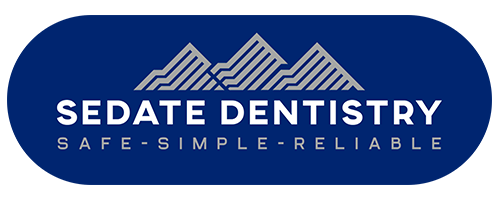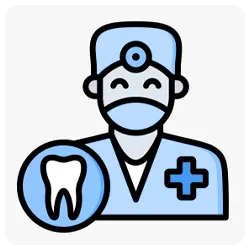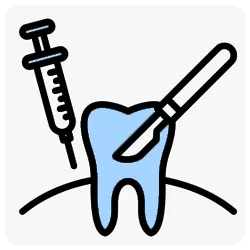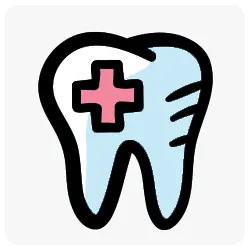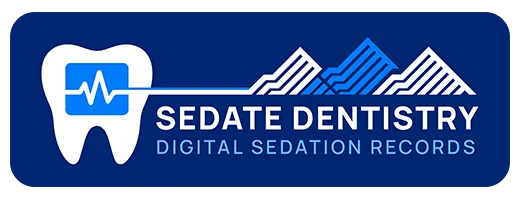
How to Train Your Team on Sedation Compliance Workflows
Sedation compliance is a daily discipline, not a binder on a shelf. This guide shows how to teach your team the exact workflows that keep you compliant—from screening and consent through interval monitoring, dose documentation, recovery scoring, and audit trails—so every operatory runs the same safe play every time.
Table of Contents
How to Train Your Team on Sedation Compliance Workflows
Define exactly what “compliant” means in your practice
Map roles to responsibilities so no step gets dropped
Build a 30–60–90 day compliance training plan
Teach nitrous documentation like a medication, not a checkbox
Make dose documentation bulletproof with micro-drills
Train on objective discharge criteria so “ready” is not a vibe
Use timer-driven interval prompts to eliminate missed vitals
Put crash-cart readiness into training rotations
Simulate the events you most want to avoid
Embed checklists where people click
Give managers a simple compliance scorecard
Tie training to a scalable, audit-ready workflow
Standardize the record so compliance is the default
Onboard the “Recorder” role as a real position
Move from paper to digital without losing context
Keep patients informed because informed patients help compliance
Compliance training that sticks turns rules into routines. Teams need to know which artifacts must exist in every chart, how to complete them in real time, and how to prove they did. This article lays out a practical training program: a competency map, short modules, hands-on drills, and scorecards tied to the same documentation you use on procedure day. You’ll also see where software prompts remove guesswork and how to measure progress so standards don’t drift.
Define exactly what “compliant” means in your practice
Clarity beats slogans. Write down the minimum artifacts a compliant sedation case must include and use them as your training backbone. Build these artifacts into your chart using Sedation visit record software so the training matches live care.
Map roles to responsibilities so no step gets dropped
Compliance fails when “everyone” is responsible for the same thing. Assign role-specific duties and train to them. Keep checklists inside Dental sedation compliance so the current version is always one click away.
Build a 30–60–90 day compliance training plan
Short sprints keep momentum and make gaps visible. Tie each stage to artifacts in your live chart so practice feels like procedure day.
Teach nitrous documentation like a medication, not a checkbox
Gas is often under-documented. Train teams to record start time, titration range, peak percentage and duration, and O₂ flush at the end. Practice this in digital sedation visit records with a timed “nitrous log” drill.
Make dose documentation bulletproof with micro-drills
Two-minute drills build muscle memory. One person calls out meds; the Recorder enters medication name, concentration (mg/mL), route, exact dose, time, indication, response, and running total; then reads it back. Use the patterns from document sedation doses accurately to keep entries consistent.
Train on objective discharge criteria so “ready” is not a vibe
Discharge is a compliance decision, not a hunch. Teach objective criteria—stable vitals, orientation, ambulation with minimal assistance, nausea/pain control, escort briefed—and require the final vitals and sign-off. Tie this to a checklist in compliance checklists for sedation.
Use timer-driven interval prompts to eliminate missed vitals
Intervals are where compliance slips under pressure. Configure timers in minute‑by‑minute IV charting so the Monitor Tech calls out vitals and the Recorder logs them. Include a policy for “extra entries” during stimulation spikes, dose changes, alarms, and events.
Put crash-cart readiness into training rotations
Compliance includes equipment that actually works. Teach the ABCD (Airway, Breathing, Circulation, Drugs) drawer layout, monthly expirations check, and AED status verification. Build your stock and audit routine from Sedation Crash Cart Requirements and keep logs in your chart.
Simulate the events you most want to avoid
Simulation turns chaos into choreography. Run short mock codes—airway obstruction with desaturation, paradoxical benzodiazepine agitation, vasovagal hypotension—and document each as if it were real. Debrief what to start/stop/continue and update policy. Use 10 Best Practices for Managing Sedation Emergencies as your scenario kit.
Embed checklists where people click
Paper checklists get lost. Put pre-op, intra-op intervals, and discharge prompts inside your live chart with required fields for concentration, route, and indication. Manage versions and staff acknowledgments in sedation compliance software.
Give managers a simple compliance scorecard
What gets measured gets maintained. Review five metrics monthly and coach to the gaps.
Tie training to a scalable, audit-ready workflow
Training sticks when it mirrors the full clinical flow: intake, consent, room setup, induction, interval charting, recovery, and QA loops. Hand your team the blueprint in Sedation workflow that scales and reinforce daily habits with prepare your office for sedation.
Standardize the record so compliance is the default
Variation is the enemy of compliance. Adopt a single template across operatories and providers so charts look the same. If you haven’t standardized yet, implement the playbook from How to Standardize Sedation Visit Records Across Your Practice https://sedatedentistry.com/post/how-to-standardize-sedation-visit-records-across-your-practice.
Onboard the “Recorder” role as a real position
Real-time documentation is a skill that deserves formal onboarding. Use the 30–60–90 plan in digital sedation training to teach read-backs, running totals, nitrous logging, and discharge scoring.
Move from paper to digital without losing context
Digital prompts, required fields, and time-stamps make compliance easier to do right. If you’re still on paper, compare clarity and audit readiness in Sedate Dentistry vs. paper records and plan your budget with Plans & Pricing.
Keep patients informed because informed patients help compliance
Clear prep and recovery instructions reduce last-minute deferrals and post-op questions. Provide simple handouts, review them with the escort, and document the handoff. Patients asking about driving rules can review Can you drive after sedation dentistry https://sedatedentistry.com/post/can-you-drive-after-sedation-dentistry and expectations in Sedation dentistry recovery https://sedatedentistry.com/post/what-to-expect-after-sedation-dentistry-recovery-guide.
Avoid the four training pitfalls that erode compliance
Predictable traps derail good intentions. Fix them now.
● Shadowing without standards: replace “watch and learn” with written competencies and checklists.
● Overlong lectures: swap for 5–10 minute micro-modules followed by hands-on drills.
● Unclear sign-off: use pass/fail drills and a competency tracker with due dates.
● Policy drift: maintain versions and read receipts in Dental sedation compliance.
Bottom line
Sedation compliance training works when it is specific, practiced, and embedded in your live chart. Define the artifacts you need, assign roles to own them, rehearse the intervals and entries, and measure results with a simple scorecard. Back it all with software prompts and you’ll turn regulations into reliable routines that protect patients and your practice.
Next Steps
Book a Free Demo to see how Sedate Dentistry’s Digital Sedation Visit Records Software can streamline and replace paper sedation visit records—saving time, money, and increasing compliance while reducing liability and improving the quality of patient records.
Ready to modernize your sedation documentation? Book a Free Demo
